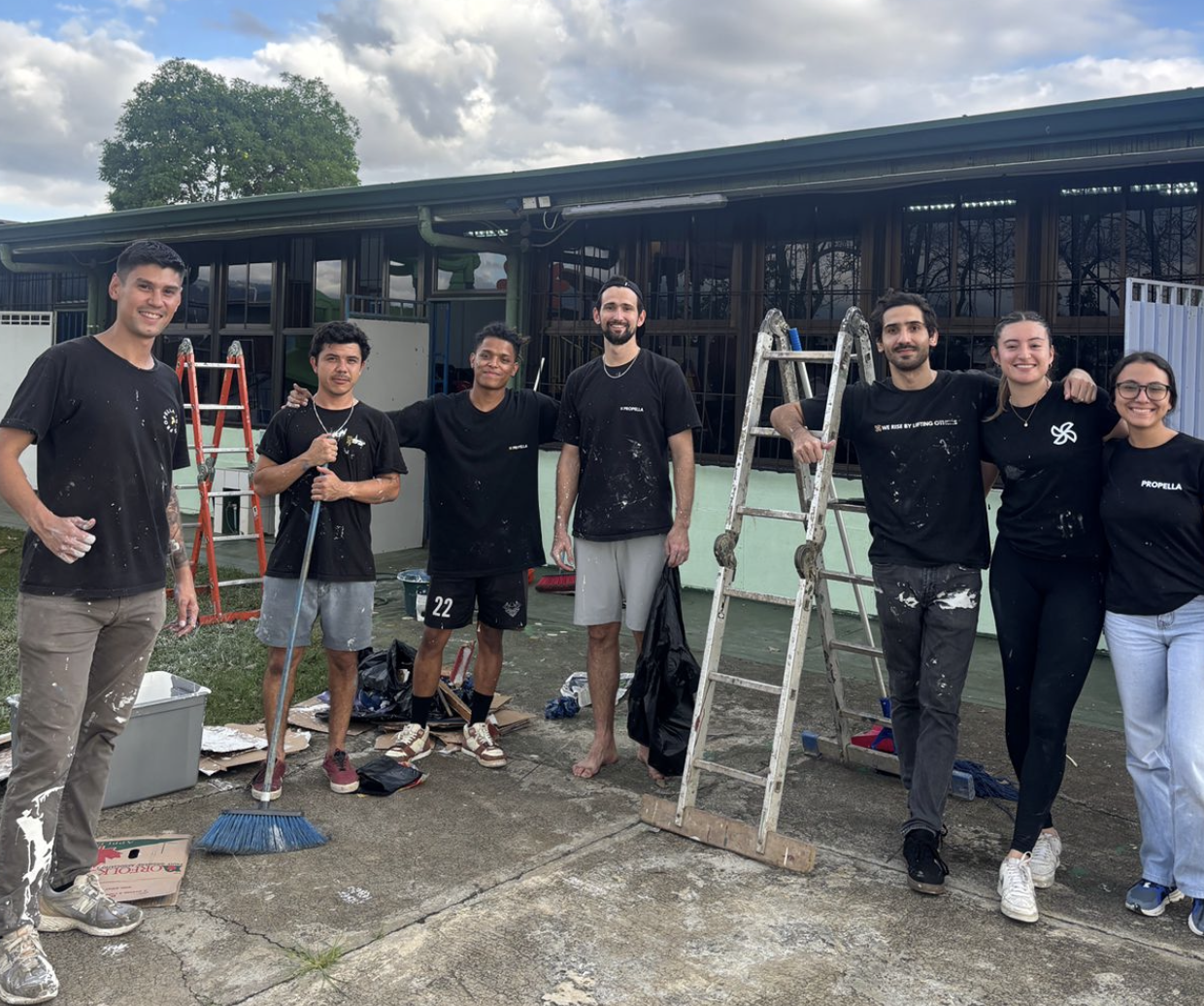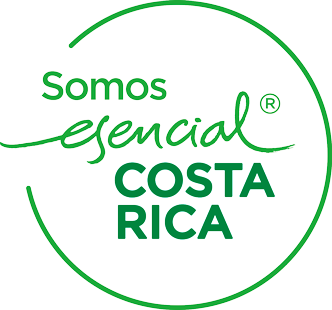Who, What, Where…: el poder de las preguntas en inglés
Cuando aprendemos inglés, uno de los momentos más importantes es descubrir cómo hacer preguntas. Preguntar es la base de toda conversación: nos permite conocer gente, aclarar dudas, pedir ayuda o simplemente interactuar de forma natural.
En inglés, la mayoría de estas preguntas comienzan con un grupo de palabras mágicas conocidas como WH-words. Aunque son pocas, abren un universo de posibilidades. Para los hispanohablantes son familiares, ya que casi todas tienen su equivalente en español que empieza con “qu-”: quién, qué, cuándo, cuál… Sin embargo, cada una tiene un uso y un significado distinto. Comprenderlas bien hará que tu inglés suene mucho más claro y natural.
Empecemos con who
Who /huː/ significa “quién” o “quiénes” y se usa para preguntar por personas.
Por ejemplo: Who is your English teacher this semester?
No se refiere a cosas ni lugares, sino a individuos concretos.
La reina de las cosas: what
Cuando hablamos de objetos, actividades o ideas, usamos what /wʌt/, que significa “qué”.
Es ideal para preguntas generales, como What is your favorite food to cook at home?
Aquí no importa la persona, sino el tema de conversación.
Movámonos en el espacio con where
Si lo que queremos es hablar de lugares o ubicaciones, utilizamos where /wɛr/, que en español equivale a “dónde”.
Por ejemplo: Where is the nearest bus stop from here?
Con esta palabra abrimos la puerta a conversaciones sobre viajes, direcciones o ubicaciones.
El tiempo manda: when
Las preguntas sobre tiempo o momentos usan when /wɛn/, que corresponde a “cuándo”.
Ejemplo: When does the movie start tonight?
Nos ayuda a organizar planes, horarios y actividades.
La razón de todo: why
Para preguntar el motivo o la causa de algo usamos why /waɪ/, que significa “por qué”.
Ejemplo: Why are you wearing a jacket in summer?
Es la palabra que nos permite entender las razones detrás de lo que sucede.
Elegir entre opciones: which
Cuando la pregunta implica escoger entre dos o más opciones, usamos which /wɪtʃ/, que significa “cuál” o “cuáles”.
Ejemplo: Which color do you prefer, blue or green?
Hablemos de pertenencia: whose
Si queremos preguntar de quién es algo, usamos whose /huːz/, que se traduce como “de quién”.
Ejemplo: Whose jacket is this on the chair?
Es muy útil en contextos cotidianos, como en la escuela, el trabajo o el hogar.
El formal whom
Por último, está whom /huːm/, que significa “a quién”. Aunque hoy en día es menos común (muchas personas simplemente usan who), todavía aparece en contextos más formales o escritos.
Ejemplo: Whom did you call yesterday evening?
¿Por qué estas palabras son tan importantes?
Dominar las WH-words no es solo cuestión de gramática: es la diferencia entre tener un inglés de libro y un inglés real, útil en la vida diaria.
Estas palabras te permiten iniciar conversaciones, pedir ayuda, hacer amigos y comunicarte en cualquier contexto. Además, aparecen constantemente en canciones, películas y exámenes internacionales, por lo que reconocerlas te facilitará mucho la comprensión auditiva y lectora.
Un buen ejercicio para practicar: hacé mini entrevistas con tus amigos usando cada palabra.
Por ejemplo:
- Who is your best friend?
- What do you usually eat?
- Where do you go on weekends?
Cuanto más natural te salga usarlas, más confianza vas a sentir al hablar inglés.
Al final, se trata de entender que preguntar no es solo una parte de la gramática: es el motor de toda interacción.
Y con estas ocho palabras, tenés en tus manos la llave para abrir todas las puertas.
Aprendé inglés con Propella Languages
En nuestras tutorías personalizadas de inglés, te ayudamos a:
Usar las WH-words con naturalidad en contextos reales
Practicar speaking y listening con actividades interactivas
Ganar fluidez y confianza al conversar con nativos
Prepararte para exámenes internacionales o mejorar tu inglés profesional
Tanto si estás empezando como si querés perfeccionar tu inglés, nuestros tutores te acompañan paso a paso para que hacer preguntas (y responderlas) se vuelva algo automático
Promoción especial:
👉 Mencioná este blog post al inscribirte y recibí un 10% de descuento en tu paquete de clases.
(Promoción válida solo para nuevos estudiantes).
When learning English, one of the most important milestones is discovering how to ask questions. Asking is at the heart of every conversation — it helps us get to know people, clarify doubts, ask for help, or simply interact naturally.
In English, most of these questions start with a group of “magic words” known as WH-words. Though there are only a few, they open up a world of communication possibilities. For Spanish speakers, they feel familiar since most of them have a Spanish equivalent starting with “qu-”: quién, qué, cuándo, cuál… However, each one has its own nuance and use, and understanding them well will make your English sound much clearer and more natural.
Let’s start with who
Who /huː/ means “who” or “whom” when referring to people.
Example: Who is your English teacher this semester?
It’s used to ask about individuals — not things or places.
The queen of things: what
When referring to objects, actions, or ideas, we use what /wʌt/, which means “what.”
It’s perfect for general questions, such as What is your favorite food to cook at home?
Here, the focus is on the topic, not the person.
Moving through space: where
When you want to ask about location, use where /wɛr/. It means “where” in Spanish.
Example: Where is the nearest bus stop from here?
This question opens doors to conversations about travel, maps, directions, and spaces.
Time rules: when
For questions related to time and moments, use when /wɛn/.
Example: When does the movie start tonight?
It helps you plan schedules, meetings, and events.
The reason behind everything: why
Whenever you need to understand the cause of something, use why /waɪ/, which means “why.”
Example: Why are you wearing a jacket in summer?
This question gives you access to explanations and reasoning.
Choosing between options: which
When you need to select between two or more options, use which /wɪtʃ/, meaning “which.”
Example: Which color do you prefer, blue or green?
Talking about ownership: whose
To ask who something belongs to, use whose /huːz/, meaning “whose.”
Example: Whose jacket is this on the chair?
It’s very useful in everyday contexts — school, office, or home.
The formal whom
Finally, there’s whom /huːm/, which also means “whom” or “to whom.”
It’s less common in modern English since many people just use who, but it still appears in formal or written contexts.
Example: Whom did you call yesterday evening?
Why these words matter
Mastering WH-words isn’t just about grammar — it’s the difference between textbook English and real, natural English.
These words are the backbone of daily communication. They allow you to start conversations, ask for help, and connect with people in any situation. They also appear constantly in songs, movies, and international exams, so recognizing them instantly makes comprehension much easier.
�A great way to practice: make mini-interviews with your friends using each word.
For example:
- Who is your best friend?
- What do you usually eat?
- Where do you go on weekends?
The more naturally you use them, the more confident you’ll feel speaking English.
Ultimately, asking questions isn’t just a grammar rule — it’s the engine of communication. And with these eight words, you hold the key to every conversation.
Learn English with Propella Languages
In our personalized English tutoring programs, we help you:
Use WH-words naturally in real-life situations
Practice speaking and listening through interactive activities
Gain fluency and confidence when talking with native speakers
Prepare for international exams or improve your professional English
Whether you’re just getting started or want to perfect your English, our tutors guide you step by step until asking (and answering) questions becomes second nature
Special Offer:
👉 Mention this blog post when you enroll and receive 10% off your class package.
(Offer valid for new students only.)

October 10, 2025









